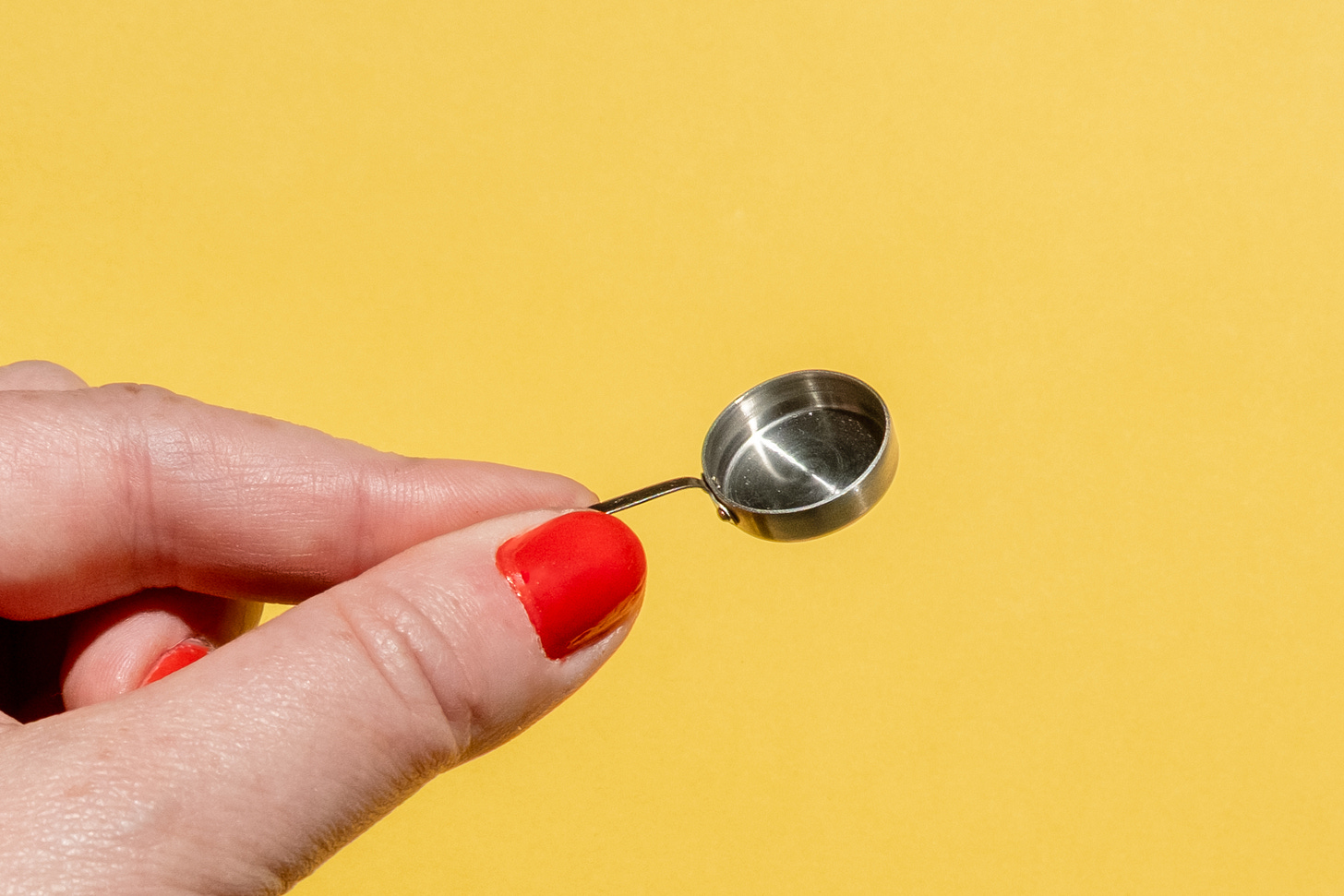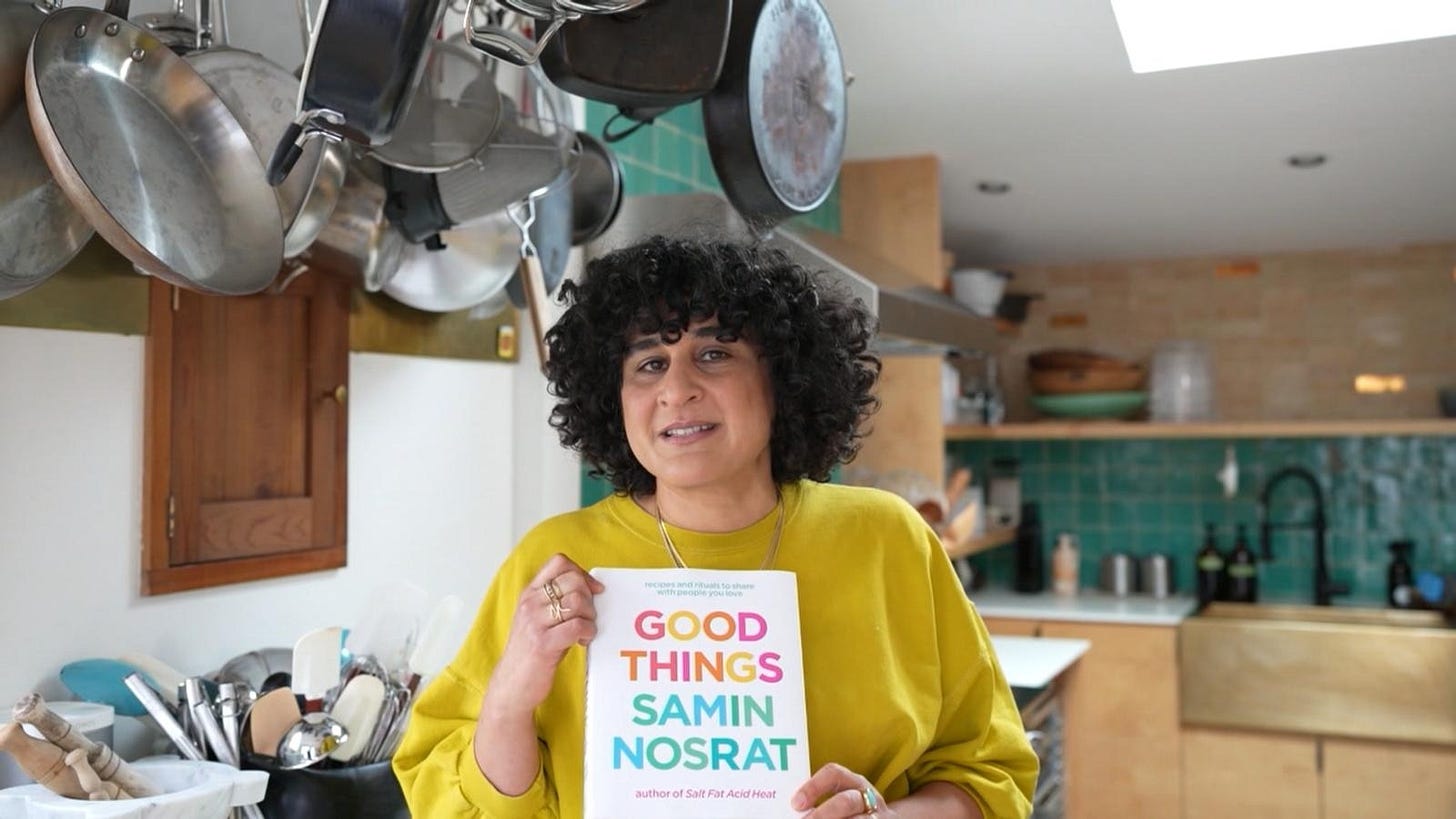I recently read a review of Samin Nosrat’s second cookbook, Good Things: Recipes and Rituals to Share With People You Love. The cookbook sounds amazing, but what first caught my eye was the backstory.
In case you haven’t heard of her, Samin Nosrat is an accomplished chef, Chez Panisse alumna, and a Bay Area food celebrity. I once saw her at an egg sandwich popup and was starstruck! It also confirmed my suspicions that the egg sandwich was legit.
The article, “As Good as it Gets,” written by Amiel Stanek for Bon Appétit (yes, that controversial publication), starts with a description of how Nosrat basically broke all the rules with her 2017 debut cookbook Salt, Fat, Acid, Heat.
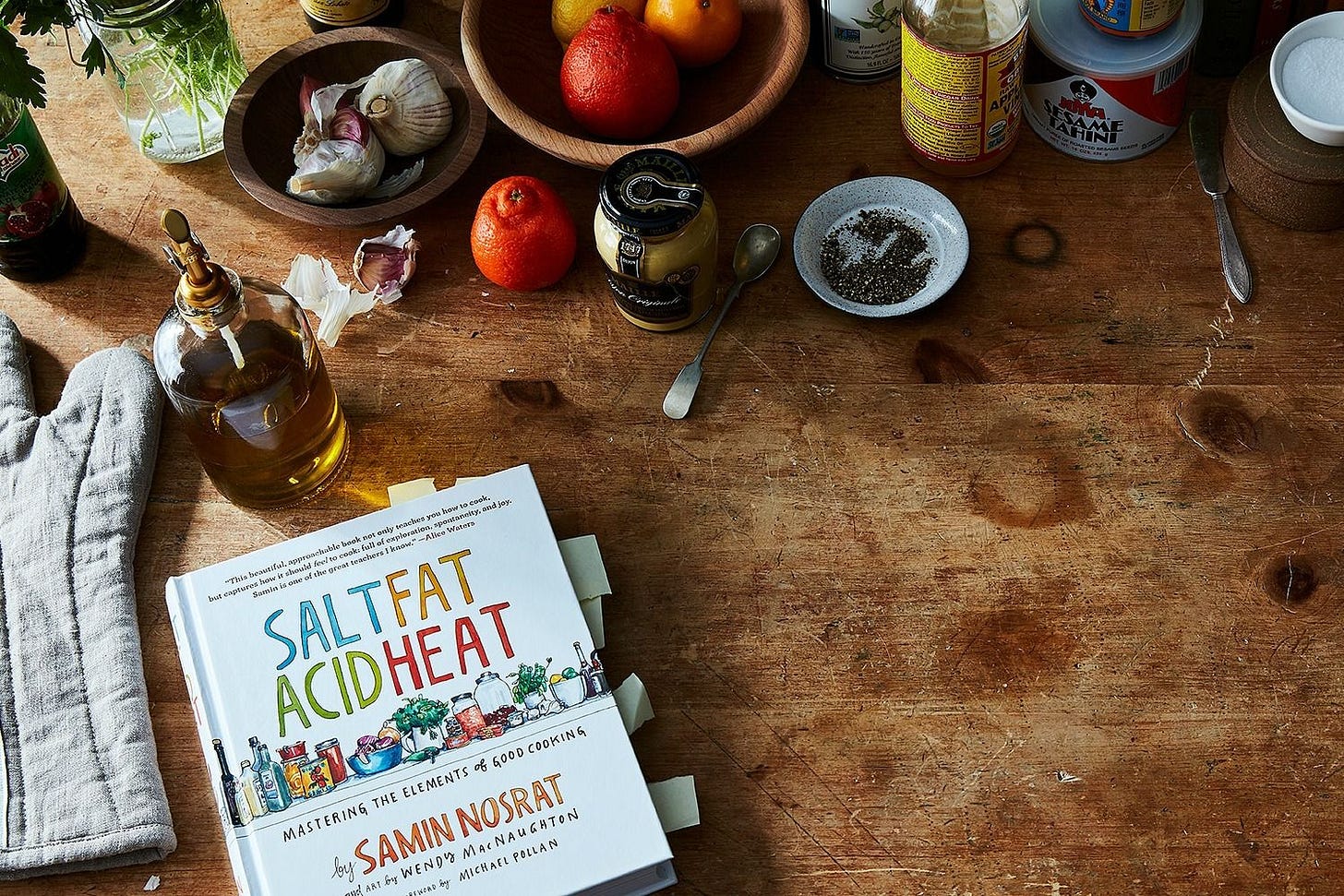
Rather than being jammed full of recipes illustrated with pictures of styled food, Salt, Fat, Acid, Heat (SFAH) focused on the fundamentals of cooking. Samin Nosrat’s goal was to teach people the skills to become better, more intuitive cooks through balance of flavor.
As Amiel Stanek wrote, this felt revolutionary at the time:
It seemed a dubious proposition in a media moment characterized by instant gratification, one that privileged “one cool trick” over patient interrogation of processes. And yet, Salt, Fat, Acid, Heat was a runaway hit. Bestseller lists. A James Beard Award. Features in magazines. A four-part Netflix series. Nosrat had a deal for a second book and nowhere to go but up.
SFAH rocketed Nosrat to foodie fame. But as you may have guessed, Stanek’s line “nowhere to go but up” was a bit foreshadowing.
As counter-intuitive as it may seem, the aftermath of achieving a goal, or a major success can be a tough place to be. In Samin Nosrat’s case:
The book was her life's work, the culmination of a 17-year-long career, and now that it was in the world she felt unmoored. "My whole life was on a trajectory toward that book," she says. "I was so focused on achievement for so long. And then I got somewhere and looked up and I was like, why? What do I have to show for this? I'm not actually full of joy. I don't feel lighter."
Nosrat was facing other life challenges (a depression diagnosis, an ailing father, the pandemic) that likely contributed to this feeling, but the sentiment of her quote sounded familiar.
Now what?
While I am not a critically-acclaimed cookbook author, I totally get that post-achievement “unmoored” feeling—at a smaller scale, of course!
I recall achieving an early professional goal, and as soon as the fleeting sense of accomplishment had finished washing over me, my next thought was: “okay, now what?” The box was checked and it was time to add another goal to my to-do list.
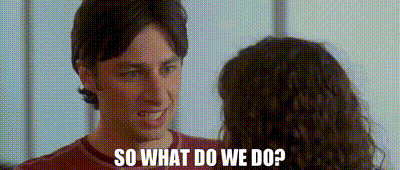
The thing we work so hard for is rarely the end point. It’s just a stepping stone to another difficult decision or goal to achieve. Which means that pausing to celebrate or savor an interim success isn’t exactly hardwired in our behavior. It’s nearly always replaced with the pressure of what comes next.
Competing with yourself
For some people, a success can be a huge motivator. To quote a woman I recently interviewed during a consulting project: “I see ‘who I was’ as my biggest competition.” But the desire to top a prior success can make it immobilizing to do something else, especially to try new things, or to take risks. It can create existential questions, or even dread. And terms like sophomore slump come to mind.
While I don’t want to assume things about Samin Nosrat, Stanek shares that she started two different concepts for her second cookbook that she scrapped, and even tried to return the advance she received from her book publisher. I imagine that at least some pressure had wiggled its way into her mind as she worked on it. Maybe some not-so-helpful thoughts like: what if cookbook #2 doesn’t lead to a Netflix docuseries or a James Beard award?
But this isn’t just a potential problem for famous foodies. It can impact us all. What if my next post gets fewer likes than my last one? What if the second sweater I knit doesn’t get cherished as much as the first one? What if my second version of X isn’t as good as my first? What if I have hit my peak?
Ahem.
I was recently blindsided by the fact that it’s already August. The year has flown by. I’ve been busy with Practice, my consulting work, life. But I’ve not been as prolific in my making. By this time last year, I had completed a dollhouse, created a miniature scene to illustrate a Passover Hagaddah (which I then designed and printed), had nearly finished a miniature living room scene for publication in a magazine, and had a good start on my mini restaurant. 2024 was a BIG year for my minis.
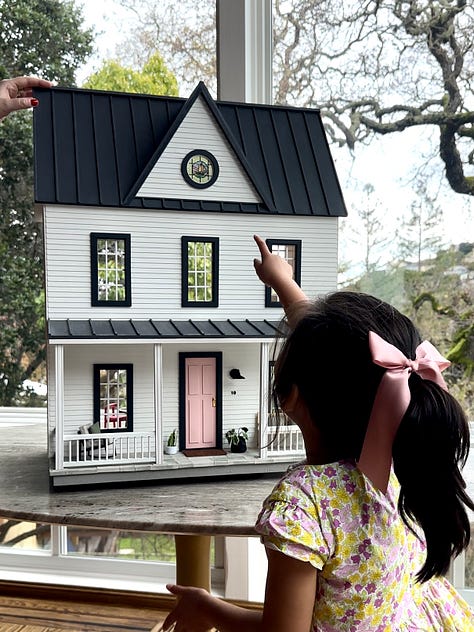
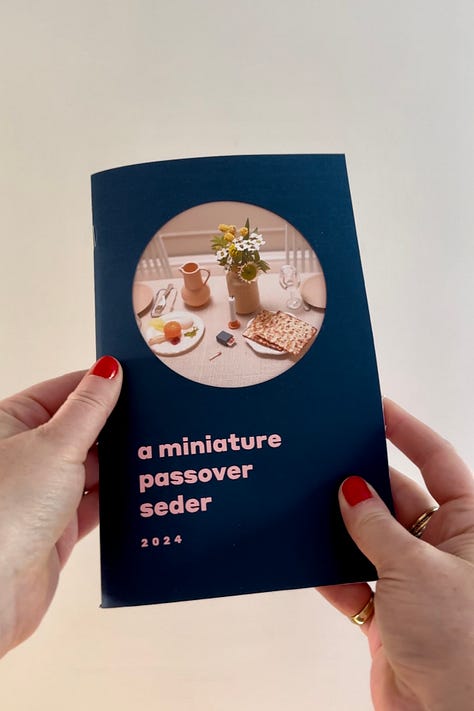

But this year, I have moved more slowly.
I’m working on a miniatures project I’m excited about, but I am taking my sweet time. I spent a lot of creative cycles planning and executing workshops. I’m still making things, but my completed project count is way down. Here are some of my recent making sessions, courtesy of a WIP view from the Practice app:
I recently found myself wondering: what if I‘ve peaked? What if my creative hobby will never be “as good as it was” in 2024?
But then, I stopped myself. Because, it’s a trap! This existential, comparative swirl is masking the point of making things—having fun, creating an outlet for exploration, experimentation, creativity. I am doing all of this for myself. For joy. It is not about quantity or accolades. It’s about following my heart and tapping into the fact that creative making is a wildly powerful form of self-care.
Choosing meaning
It’s taken Samin Nosrat 8 years and a few attempts to create her second cookbook. And it looks awesome.
It also sounds like an amazing follow up to her first book. To quote Amiel:
If the mission of her first book was to teach readers how to be good cooks, her latest is all about why anyone should want to be a good cook in the first place, a question that is as existential as it is practical. Not for the praise, not for self-aggrandizing satisfaction of a dish made perfectly. But because gathering the people you care about is essential to a meaningful life.
Much like her first cookbook, Nosrat has seemingly tapped into something that feels revolutionary—and quite meta. Instead of centering on cooking as output and a source of praise, it is about choosing meaning. While I don’t know her, it sounds powerfully authentic, and like it’s not about chasing accolades (though I’m sure it will be acclaimed). It sounds like it’s what she feels is important and valuable. What brings her joy.
And, as you probably guessed, I absolutely love that!
To quote Samin Nosrat:
”Cooking...is about more than nourishment. It's a way to share what's most valuable to you with the people you care about.”
Borrowing her lens, creative hobbies, like cooking, are about choosing to make something because it matters to you. When the pressure to perform creeps in, I encourage us all to try to remember: the real power of making is in how it nourishes—first the maker, then everyone lucky enough to share in that joy.


